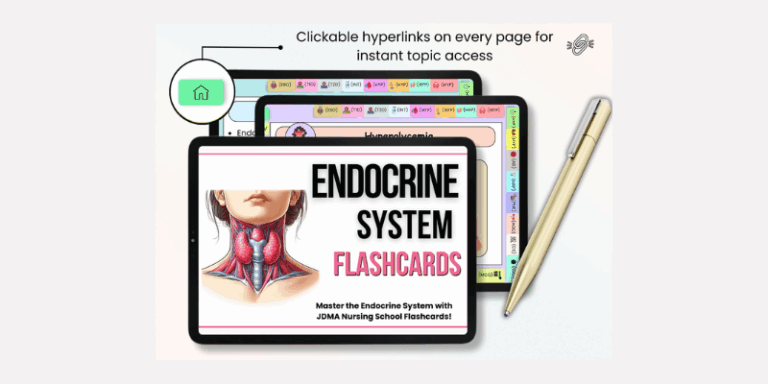
Best Nursing School Bundle for Academic Excellence
Find out which best nursing school bundle ranks best for knowledge retention and test prep. Choose the right bundle for success.
Kullanıcılarına güvenli ortam sağlayan altyapısıyla Bettilt sektörde ön plandadır.
Kullanıcıların sisteme erişim için ilk durağı Bettilt adresidir.
Online bahislerde yüksek kazanç isteyenlerin tercihi her zaman güvenilir bahis siteleri olmuştur.
Her zaman kullanıcı odaklı düşünen Bettilt casino, basit kayıt süreci ve sade tasarımıyla yeni başlayanlar için idealdir.
Bahis sektöründe adından sıkça bettilt söz ettiren kaliteyi ön planda tutuyor.
Kazançlı kombinasyonlar hazırlamak isteyenler için bettilt analiz desteği sunar.
Türk bahis pazarının büyüme oranı bahsegel hoşgeldin bonusu yıllık %14 bu trendi yakından takip eder.
Accurate nursing dosage calculations are critical to safe and effective patient care. Nurses are responsible for ensuring that medications are administered correctly which requires not just theoretical knowledge but also real world application of mathematical skills. Mistakes in dosage can lead to serious consequences making this aspect of nursing practice a cornerstone of healthcare delivery.
The ability to perform precise dosage calculations impacts every part of nursing practice. Administering too much or too little of a drug can harm patients. According to a report by the Institute for Safe Medication Practices (ISMP) 41% of preventable medication errors in hospitals are related to incorrect dosages.
As Dr. Emily Carter, a senior nurse educator explains:
“Mastering dosage calculations ensures patient safety and builds trust between nurses, patients and other healthcare professionals.“
Nurses rely on Nursing Dosage Calculations daily to ensure patient safety when administering medications. This is especially crucial for liquid drugs, weight based dosing and intravenous (IV) infusions. Accuracy is vital as even small errors can lead to serious complications.
Dr. Sarah Johnson, a clinical educator explains,
“Precision in dosage calculations ensures effective treatment while minimizing risks”.
By mastering these skills, nurses deliver medications safely, protecting patients and maintaining trust.
Accurate IV infusion rate calculations are a cornerstone of safe and effective nursing care. Whether delivering fluids, medications or nutrients nurses must ensure that patients receive the prescribed volume within the specified timeframe. Errors in infusion rates can result in underdosing or adverse effects making Nursing Dosage Calculations a critical skill.
Dr. Emily Grant a specialist in nursing education highlights,
“Precise calculations of IV flow rates are essential for maintaining fluid balance and delivering therapeutic doses effectively”
Nurses often use guidelines from trusted references like the Nursing Drug Handbook to double check their calculations.
By mastering IV infusion rate calculations nurses ensure patient safety and treatment efficacy building confidence in their practice and trust with patients. This competency reinforces the importance of Nursing Dosage Calculations in daily clinical responsibilities.
Weight based dosing is vital in administering medications like antibiotics, chemotherapy and pediatric treatments. By adjusting doses to the patients weight or body surface area (BSA) nurses ensure the treatment is both effective and safe minimizing the risk of overmedication or insufficient dosing.
Dr. Linda Rogers a pharmacology expert emphasizes,
“Weight based dosing is especially crucial for high risk medications where precision directly impacts patient safety and outcomes”
Nurses often refer to dosing charts or trusted references like the Nursing Dosage Calculations Handbook to confirm their math.
This method is particularly important in pediatric care where weight variability is significant and in treatments like chemotherapy where body composition directly affects drug efficacy. Mastery of weight based calculations allows nurses to confidently administer medications safeguarding patients and enhancing trust in their expertise. It highlights the critical role of Nursing Dosage Calculations in delivering individualized effective care.
Nursing Dosage Calculations become even more critical when titrating medications that require precise adjustments based on patient responses. Medications like insulin or vasopressors are often dosed according to sliding scales or algorithms that depend on lab values. This process ensures that the patient receives the correct amount to stabilize their condition without causing harm.
Dr. Michael Lee, an endocrinologist notes,
“Titrating insulin based on blood glucose levels requires a clear understanding of how the drug affects the body as well as precise calculation to avoid hypoglycemia or hyperglycemia”
Nurses often rely on reliable sources like the Nursing Drug Handbook to guide these calculations and make informed decisions.
By mastering these dosage calculations nurses can safely and effectively adjust medication dosages ensuring optimal therapeutic outcomes for their patients. This practice underscores the importance of Nursing Dosage Calculations in providing high quality patient care.
Nursing Dosage Calculations are critical in emergency settings where quick accurate dosing can mean the difference between life and death. In emergencies such as cardiac arrest or severe allergic reactions nurses must be able to calculate and administer medications rapidly often under high stress. This precise calculation ensures that the right dose is given to stabilize the patient.
For instance when administering epinephrine for anaphylaxis nurses use weight based dosing to determine the correct amount.
Dr. Sarah Chen, an emergency medicine specialist states,
“In critical situations dosage calculations must be quick and precise to prevent complications like severe hypotension or heart arrhythmias”
Nurses often refer to dosage charts or protocols such as those found in the Advanced Cardiac Life Support (ACLS) guidelines to ensure correct dosing.
Mastering Nursing Dosage Calculations in emergencies is essential for patient survival. It highlights the importance of reliable calculations and the need for thorough preparation and knowledge in handling acute medical situations. This competency underscores the critical role of Nursing Dosage Calculations in emergency care.
Mastering Nursing Dosage Calculations requires familiarity with several essential formulas. Knowing these formulas by heart is crucial for quick and accurate calculations:
Dr. John Matthews, a clinical pharmacistcexplains,
“Without a solid grasp of these formulas nurses can make critical errors in medication dosing potentially putting patients at risk”
Nurses often practice these calculations using tools like dosage calculation apps or interactive online modules to reinforce their understanding and accuracy.
Regular practice with these formulas helps nurses to quickly and confidently calculate medication dosages enhancing patient safety and care quality. This competency is vital for anyone working in healthcare ensuring timely and effective treatment delivery.
Regular practice is key to mastering Nursing Dosage Calculations. Utilizing resources specifically designed for this purpose such as Dosage Calculations Made Incredibly Easy can greatly enhance your understanding and confidence. These resources offer a variety of practice problems, detailed explanations and step by step solutions to help reinforce learning.
By regularly practicing dosage calculations nurses can develop the skills needed to make accurate and safe dosing decisions. For instance this resource provides practice exercises that simulate real life scenarios helping nurses apply formulas in context. This method not only builds confidence but also improves accuracy under pressure.
Dr. Emily Young, a nurse educator emphasizes,
“Regular practice is essential for retention. Nurses who routinely engage with dosage calculations are better prepared to handle the stress of clinical practice”
Consistent practice with resources like dosage calculations made incredibly easy allows nurses to retain critical formulas and concepts ultimately ensuring safer medication administration.
By incorporating these tools into study routines nursing students can master dosage calculations and provide optimal patient care. This approach is crucial for anyone looking to excel in their nursing education and practice.
In today’s healthcare environment Nursing Dosage Calculations are increasingly supported by technology. Many hospitals utilize electronic health records (EHR) systems and smart IV pumps to assist with medication dosing calculations. These systems streamline the process by providing automatic checks for dosage errors, drug interactions and infusion rates. While these technologies are valuable tools nurses must verify accuracy.
EHR systems often include built in calculators that help nurses quickly determine the correct dosage for medications. Smart IV pumps can set flow rates automatically reducing human error and ensuring precise delivery of fluids or medications over specific periods. However reliance on technology alone is not sufficient nurses must still double check calculations and use their understanding of pharmacology and physiology to ensure patient safety.
Dr. Linda Martinez, a clinical nurse specialist notes,
“Technology is a great aid, but it’s not infallible. Nurses must maintain vigilance and verify all calculations, even when using automated systems”
The combination of technological tools and a solid grasp of dosage calculation principles allows nurses to provide safer more accurate care.
By integrating technology into their practice nurses can enhance their efficiency and accuracy in administering medications. This approach helps prevent dosing errors ultimately improving patient outcomes and safety.
Nurses are on the front lines of patient safety, and accurate Nursing Dosage Calculations are fundamental to this role. These calculations are crucial for everything from routine medication administration to handling high stakes emergencies where precise dosing can mean the difference between life and death. Dr. Carter highlights,
“The math behind nursing isn’t just numbers it’s the bridge between knowledge and saving lives”.
For both nursing students and practicing professionals mastering dosage calculations is not just about clinical success it is about building patient trust and ensuring safety in all healthcare settings. This skill is essential for delivering effective care and maintaining the integrity of the profession.

Find out which best nursing school bundle ranks best for knowledge retention and test prep. Choose the right bundle for success.

Complete nursing school workbook bundle! Includes flashcards for nursing students, cheat sheets, dosage calculation practice, and more.

Master nursing concepts faster with our nursing school flashcards bundle! Printable & digital options for effective studying.
By subscribing to our newsletter you agree to our Terms and Conditions and Privacy Policy